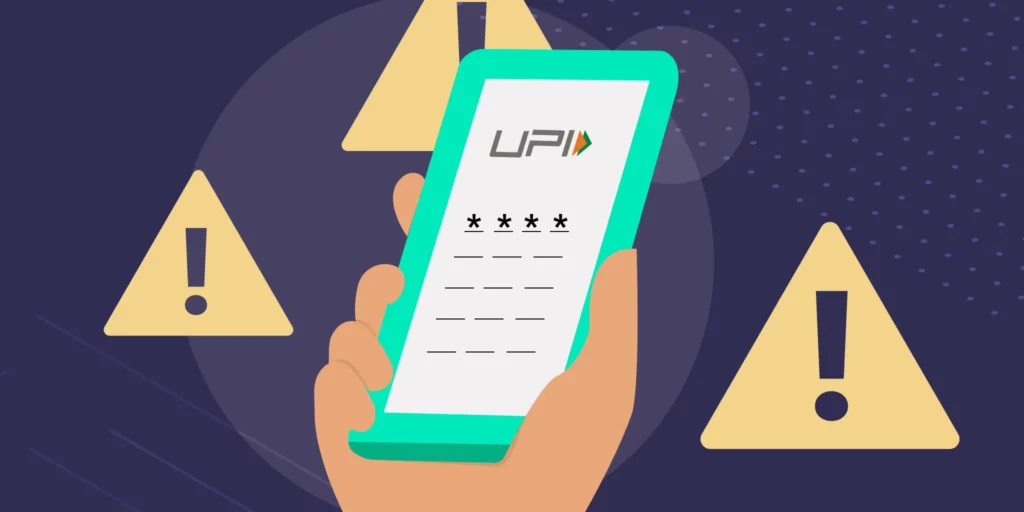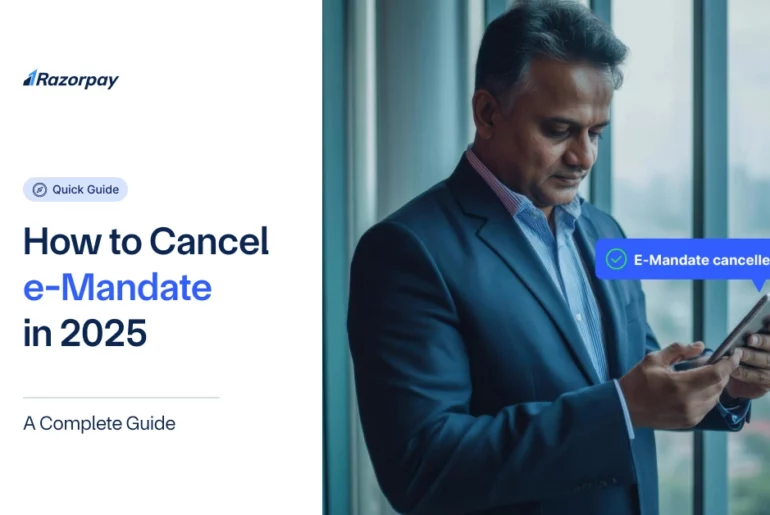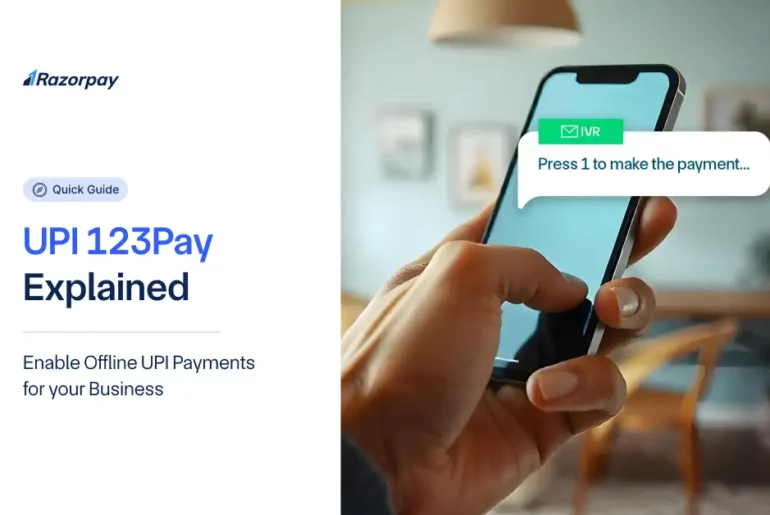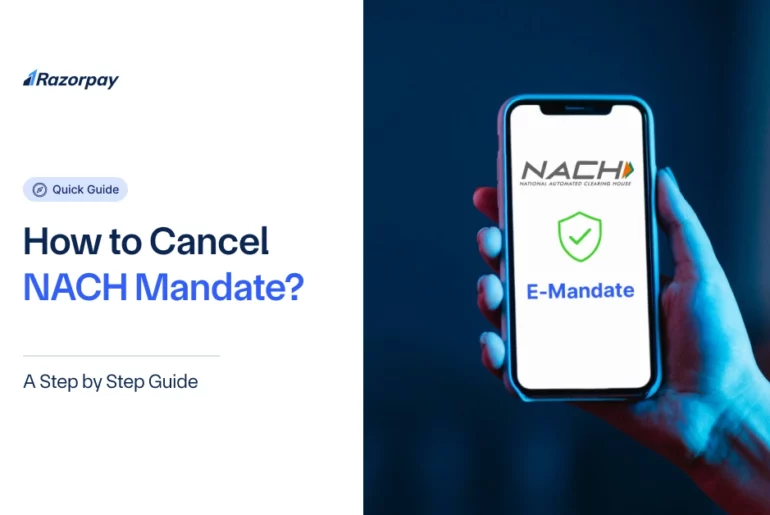UPI frauds have surged in India, with over 13.4 lakh cases reported in the 2023-24 financial year, leading to losses exceeding ₹1,087 crore. Fraudsters use tactics like fake UPI IDs, phishing, and social engineering to deceive users. To protect yourself, regularly update your UPI PIN, stay informed about common scams, and never share sensitive information.
Table of Contents
What is UPI Fraud?
UPI fraud is a scam where fraudsters exploit the Unified Payments Interface (UPI) to steal money or sensitive information from users. They use tactics like phishing, fake UPI links, and social engineering to trick individuals into revealing their UPI PIN, OTP, or bank details, leading to unauthorized transactions.
Related Read: Fraud Analytics: A Guide to Preventing Financial Fraud
Types of UPI Fraud
1. Vishing
Fraudsters pose as bank representatives and trick users into revealing sensitive details like UPI PINs and passwords.
2. Fake UPI Payments & Transfers
Scammers deceive users by making them believe they have received or authorized a UPI transaction. This includes:
- Fake UPI QR Codes: Redirect users to phishing sites or malicious apps to steal credentials.
- Fake Payment Screenshots: Fraudsters send fake transaction confirmations to mislead users.
3. Impersonation
4. Phishing
5. Fraudulent Sellers
Scammers on online marketplaces trick buyers by selling counterfeit goods or failing to deliver promised items.
6. Screen Monitoring Apps
Malicious apps secretly record users’ screens, capturing UPI PINs, OTPs, and banking details.
7. Malware Attacks
Malicious software, often downloaded from fake links or attachments, extracts sensitive banking information.
8. Money Mule Scams
Fraud rings transfer stolen money through intermediary accounts (money mules) to conceal illegal transactions.
9. SIM Cloning
Fraudsters clone a user’s SIM to receive OTPs and reset UPI credentials, gaining access to their bank account.
10. Deceptive UPI Handles
Scammers create fake UPI handles on social media or online platforms, luring users with offers or urgent payment requests.
11. Collect Request Scams
Fraudsters send misleading UPI collect requests or claim to process refunds, tricking users into authorizing fraudulent payments.
How Do Hackers Execute UPI Fraud?
It’s been observed that fraudsters follow a pattern whilst executing these elaborate plans. As a result, we’ve managed to weave a stepwise timeline of how these plans are generally performed. Let’s take a look at how UPI fraud occurs:
- STEP 1: It all starts with a random call. Fraudsters usually call targets to get their attention, as opposed to texting. They commonly disguise themselves as a bank representative, calling for a seemingly harmless issue.
- STEP 2: To make the call sound legit, they proceed to ask verification questions like your date of birth, name, or mobile number.
- STEP 3: There is always a problem. Hackers use technical difficulties in the app or website to talk to you. They usually weave false stories that convince you to forfeit your personal information to resolve the issue.
- STEP 4: Once the fraudster has convinced you, they ask you to download an application on your phone. Some of these apps are AnyDesk and ScreenShare, which are available on the Google Play Store.
- STEP 5: While downloading AnyDesk or a similar application, it asks for privacy permission, like other regular apps. But don’t be fooled; these apps can access everything on your phone.
- STEP 6: The fraudster will then ask you for a 9-digit OTP generated on your phone. As soon as you reveal the code, the hacker will also ask to grant permission from the phone.
- STEP 7: When the app acquires all permissions required, the caller starts to take complete control of your phone without your knowledge. After gaining full access to your phone, the hacker steals passwords and begins transacting with your UPI account. Thus, you become one of the many victims of UPI fraud.
We identified other approaches, too. For example, fraudsters send an SMS and ask you to forward it to another number they provide. After the message is successfully sent, the fraudster can link your mobile number or account through UPI to their mobile.
Related Read: How to Reverse Wrong UPI Transactions?
A Guide to UPI Fraud Prevention
Preventing UPI fraud is possible by following these key precautions:
- Avoid Unknown Calls & Messages – Banks never ask for sensitive information. Verify unknown numbers using apps like Truecaller.
- Be Cautious with Payment Requests – Scammers misuse the “request money” feature. Remember, receiving money doesn’t require a PIN.
- Watch for Spam Warnings – UPI apps flag suspicious transactions. Report and block unknown requests.
- Avoid Fake Apps – Only download UPI apps from official sources like Google Play Store or Apple App Store.
- Enable Security Features – Protect your UPI app with biometrics and install antivirus software.
- Verify Emails Before Clicking – Hackers use phishing emails to steal credentials. Always check for authenticity.
- Monitor Account Activity – Regularly review bank statements for unauthorized transactions.
- Avoid Public Wi-Fi – Hackers can intercept banking data on unsecured networks. Use a trusted connection.
- Track Bank Messages – Carefully check OTPs, PINs, and transaction alerts for inconsistencies.
Staying vigilant and following these security practices will help protect you from UPI fraud. Report any suspicious activity to your bank immediately.
Related Read: Is UPI Safe for Online Payment? – Tips to Stay Safe From Scams & Frauds
Basic Do’s and Don’ts To Avoid UPI Fraud Cases
| Do’s | Don’ts |
| Beware of fraudulent calls or messages from individuals posing as bank representatives. Verify unknown numbers using apps like Truecaller and avoid sharing personal details. |
Never share your UPI PIN, password, or OTP (One-Time Password) with anyone, including bank representatives. Legitimate banks never request such details via calls, emails, or messages.
|
| Use a secure and trusted Wi-Fi network while making UPI transactions. |
Avoid using public or unsecured networks, as they can be accessed by hackers.
|
| Regularly update your UPI apps to the latest version. Software updates include security enhancements that protect against fraud. |
Never disable push notifications and transaction alerts on your UPI apps, as they help detect suspicious activities.
|
| Monitor your UPI account activity and transaction history regularly. Report any unauthorized transactions to your bank immediately. |
Do not leave your bank account unattended or ignore security alerts related to your transactions.
|
RBI Guidelines on Unauthorised Transactions
The Reserve Bank of India (RBI) has set clear guidelines to protect customers from unauthorised digital transactions, including UPI frauds. Refund eligibility depends on how quickly the issue is reported.
- Within 3 days: The bank must provide a full refund for the unauthorised transaction.
- Within 4-7 days: Customer liability is limited, ranging between ₹5,000 to ₹25,000, depending on the transaction type.
- After 7 days: Refund eligibility is based on the bank’s policy, and the customer may have to bear the loss.
To stay protected, users should enable multi-factor authentication, monitor account activity, and avoid sharing UPI credentials. Always report fraudulent transactions immediately to minimize financial loss.
Related Read: How to Unblock UPI ID?
Related Read: MPIN vs UPI PIN: What’s the Difference?
Conclusion
As digital transactions rise, so do UPI fraud risks. Scammers use tactics like phishing, malware, and SIM cloning to exploit users. Stay cautious—avoid unknown calls, verify payment requests, and watch for spam warnings. Prioritize security by safeguarding your PIN, using biometric authentication, and monitoring account activity. Report any suspicious transactions immediately to minimize risk and protect your finances in the digital era.
Related Read: How to Find UPI ID Using Google Pay?
Frequently Asked Questions (FAQs)
1. Is it safe to share UPI ID?
Sharing your UPI ID or Virtual payment address is generally considered safe for digital transactions. It is essential to be cautious and only share your UPI ID with trusted individuals or verified organisations. However, do not disclose sensitive details like UPI pin or mPIN or transaction passwords to untrusted individuals, websites or social media platforms to prevent unauthorised access and potential fraud.
2. How do I report online money fraud or UPI fraud?
In case of online money fraud or UPI fraud, inform your bank immediately about the fraudulent charge. You can ask them to reverse the transaction or give you a refund.
3. Is the bank responsible for UPI fraud?
No, the PSP (Payment Service Provider) is responsible for any losses incurred during any instance of online payment fraud.
4. What happens if I get UPI scammed?
If you have been the victim of a UPI scam, you must report the fraud to your local police station and register a complaint with the National Cyber Crime Reporting portal, either on the phone (Dial 1930 for the helpline) or via their website.
5. Do banks investigate UPI fraud?
Banks provide protection services for their customers, so they don’t have to worry about the ever-increasing cases of UPI fraud. The first thing the bank will do is try to substantiate that UPI fraud has occurred. They will ask you to provide additional details about the transaction and how you think it’s fraudulent. Secondly, depending on the type and scale of fraud, the bank decides whether higher authorities are needed to interfere with the matter.
6. Is sharing account numbers safe, or does it lead to UPI fraud?
Yes, giving someone your basic bank account details, like the account number to deposit money, is generally safe. But, if people ask for crucial information like your PIN or password, it could be dangerous.
7. What happens if someone hacks my bank account or I face UPI fraud?
If your bank account is hacked, you need to verify your account activity, call your bank, freeze your account, change your PIN and other relevant passwords, check your transaction history, and file a police complaint.
8. Do banks refund fraudulent money?
Yes, banks are obligated to refund the money in case of fraudulent activity like UPI fraud. In most cases, banks offer debit fraud protection and must refund the money if you follow the bank’s fraud reporting procedures systematically.
9. Can UPI frauds be reversed?
UPI frauds can be reversed, but it is important to act quickly. If you become a victim of a UPI fraud, immediately contact your bank and report the incident. They will guide you through the process of reversing the fraudulent transaction. It is crucial to provide all necessary details and evidence to support your claim.



